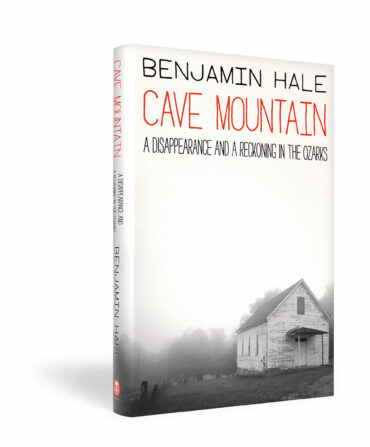Jen Hidinger
Philanthropist-Restaurateur
Jen and Ryan Hidinger long dreamed of opening their own restaurant. They’d even named it—Staplehouse. Then, in 2012, Ryan, the chef at Muss & Turner’s, received a devastating diagnosis of late-stage cancer. Atlanta’s dining community quickly responded with a fundraiser that exceeded all expectations. “During a time that was frightening and uncertain, the amount raised provided us with peace of mind,” Jen says. Wanting to pay that kindness forward, the Hidingers and their friends at Muss & Turner’s began working to create the Giving Kitchen, a nonprofit foundation that would provide a safety net to food-and-beverage workers facing similar financial crisis following an illness, injury, natural disaster, or death. The couple continued with plans for Staplehouse but as a subsidiary that would help fund the project.
To date, the Giving Kitchen has awarded nearly $500,000 to more than two hundred workers. Beating the odds, Ryan lived for over a year as Staplehouse began to take shape in a historic brick storefront in the Old Fourth Ward. Today, Jen is focused on a fall opening, with her partners, Ryan’s sister and her husband, the renowned Atlanta chef Ryan Smith. Leading a guest into the restaurant space’s rear courtyard, Jen points to a back building under construction: “This will be the prep kitchen for the patio, just like Ryan and I always wanted,” she says. “He’ll be there with us the first night and every night.”
 Kevin Young
Kevin Young
Village Voice
When the poet Kevin Young began teaching creative writing at Emory University in 2005, he found himself in charge of tens of thousands of volumes of poetry donated by Raymond Danowski, a private collector. And not just first and rare editions but, as Young says, “everything by any poet writing in English.” Young set to work on the one-of-a-kind project—curating the collection within Emory’s Manuscript, Archives and Rare Book Library (MARBL), and he travels throughout the English-speaking world, continuing to acquire new volumes. MARBL recently unveiled a massive renovation and expansion. Atlanta has also proved fruitful for Young’s writing. Dear Darkness, a poetry collection, explores issues of family, grief, and cultural transmission through the lens of Southern cooking. “My dad always joked that other people called it ‘soul food,’ but we just called it food,” he says. Although Young grew up all over, he says living in the South—the land of his parents and extended family—matters deeply to him. “It’s nice to be somewhere and not have to explain when I’m reading an ode to grits.”

Ryan Gravel
Visionary Builder
As a graduate student in architecture and city planning at Georgia Tech, Ryan Gravel came up with a big idea for the patchy, fractured city that spread out before him. For his thesis, he proposed using abandoned rail lines to create a twenty-two-mile loop of public transportation and in-fill development that would help mend both Atlanta’s social and physical fabric. After graduation, he began blanketing politicians with letters. Then-city councilwoman Cathy Woolard came on board with evangelical zeal. “Cathy and I went to every school, every church, every Rotary Club,” Gravel says. “The BeltLine became a grassroots movement that took on a life of its own.” Today his pie-in-the-sky vision is becoming a reality. Nearly seven miles of trails have already opened, and it would be hard to overstate their immediate impact. Creepy dead ends became prime real estate, while remote apartments, shops, and restaurants revealed themselves as near neighbors via a BeltLine jog or bike ride. From Chicago to Singapore, the BeltLine has become a model for urban redevelopment. At its essence, Gravel’s idea was an antidote to sprawl. “Sprawl makes everything the same,” he says. “These projects take things back to the history and culture of the place.”
 Mtamanika Youngblood
Mtamanika Youngblood
Culture Crusader
When Mtamanika Youngblood and her family moved from suburban Atlanta to a Victorian in the heart of the Martin Luther King, Jr., Historic District, it became an adventure in urban pioneering. The birthplace of the civil rights movement had suffered from decades of neglect. “It was like the Wild, Wild West,” Youngblood says. As chairman of the board of the Historic District Development Corporation, she worked to rebuild the residential section of the neighborhood, but the former commercial locus known as Sweet Auburn proved more problematic. “It was the center for African American entrepreneurship, innovation, and business development,” she says. “We needed to find a way to re-create that legacy.” In 2013, after helping to save the historic offices of the Atlanta Daily World, the nation’s first black daily newspaper, she partnered with the National Trust for Historic Preservation and local stakeholders to launch Sweet Auburn Works, a nonprofit dedicated to preserving buildings and cultivating new tenants to help revive the storied district. The Royal Peacock, a once-famous nightclub, will reopen soon as Swig and M-Bar, a supper club and lounge. “Millions of people come to see this neighborhood that birthed Dr. Martin Luther King, Jr.,” Youngblood says. “For people to understand who he is, they have to understand where he came from.”
Garden & Gun has affiliate partnerships and may receive a portion of sales when a reader clicks to buy a product. All products are independently selected by the G&G editorial team.







